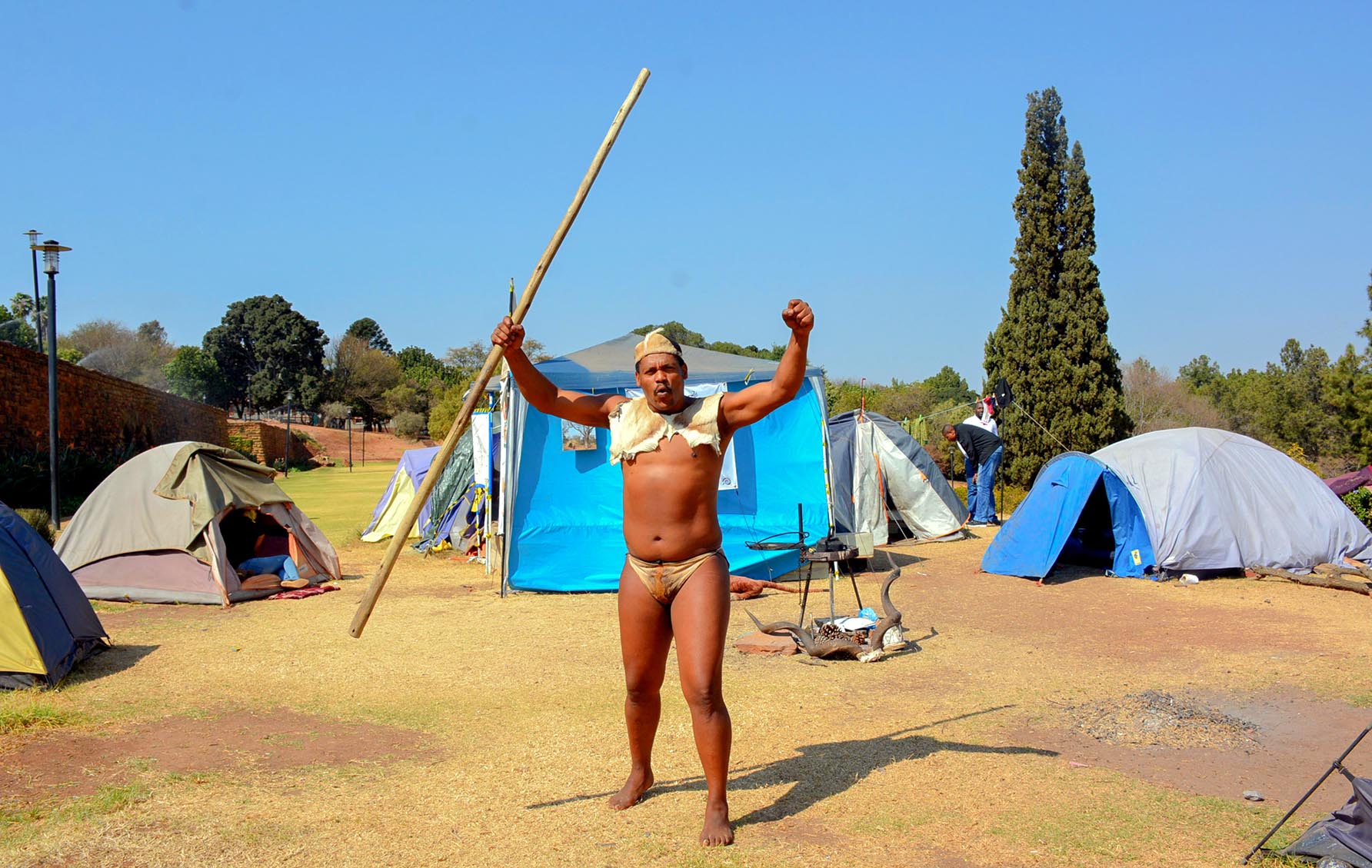The US government has acknowledged receipt of a memorandum reading: “Countering Claims by Solidarity and AfriForum Regarding Land Expropriation and requesting a meeting with President Donald Trump.”
Written by Christian Martin, an activist for the recognition of the Khoi and San people in South Africa, the memorandum says it needs to clarify the concerns raised by Solidarity and AfriForum regarding land expropriation without compensation in South Africa.
“As the Khoi and San indigenous peoples, we find it imperative to remind the Trump administration that the complainants, Solidarity and AfriForum, are often silent regarding their own historical actions involving the expropriation of land from indigenous people without compensation.
“The very practices these organisations now decry, were once perpetrated against our ancestors by the British and Portuguese colonial forces as well as the South African apartheid government. The generational wealth accumulated by these groups is rooted in the injustices and dispossession of land from the Khoi and San people. If the Trump administration is sincerely interested in supporting South Africans, it must consider addressing the historical injustices that have long affected indigenous communities.”
The memorandum follows an announcement by US President Donald Trump in February that “certain classes of people” in South Africa were being treated “very badly”, with the promise to suspend aid until his government’s investigation of the matter was finalised. He further claimed that South Africa was “confiscating land”, apparently relying on the new Expropriation Act that was signed into law by President Cyril Ramaphosa, which allows for expropriation without compensation of property in the public interest if certain conditions and procedures have been met. Trump did not mention the law by name though. Since then USAID has ended its support for HIV/Aids-related programmes in South Africa.
Since Trump’s announcement his representatives have been visited by the Afrikaner interest group AfriForum and the union Solidarity in Washington. This was not welcomed by the South African government.
Read more: South African leader wants to do a deal with Trump to resolve dispute
Martin, however, wrote in the memorandum that they have an alternative suggestion for how Trump can help.
“We urge the Trump administration to recognise that to genuinely assist South Africa it should explore the possibility of taking the British and Portuguese colonial rulers as well as apartheid regimes to the International Court for crimes against humanity and genocide. This would serve as a vital step toward acknowledging the suffering endured by the Khoi, San and other indigenous communities and lead to a broader conversation about reparations.
“In conclusion, we call upon the Trump administration, Solidarity and AfriForum to critically engage with the history of land dispossession in South Africa. Acknowledging past abuses is essential for moving toward a just and equitable future for all South Africans.”
Martin said it was important for the Khoi and San people to be part of the conversation about the Expropriation Act.
“We don’t necessarily agree with AfriForum but we will go talk to them. I am hoping we can find common ground. I feel as the first indigenous people of South Africa we can be the bridge builders. The Constitution talks about the country belonging to all who live in it,” he added.
AfriForum and Ramaphosa have accused each other of sowing division in South Africa.
“It remains a great irony to me that we as the first people of South Africa welcomed everyone here to come live with us and now we are the ones who must beg,” Martin said.
“I think it is sad that the current government will rather meet with AfriForum than with us. We have made no progress since we first started camping at the Union Buildings (in 2019).”
He said they have been waiting for eight years for someone from the Presidency to get back to them, as was promised in 2017. Representatives from the Khoi and the San have been camping out at the Union Buildings since 2019 but their structures were broken down earlier in 2025 after the Department of Public Works obtained an eviction order against them.
In January the Department of Public Works said it had sympathy with the serious grievances of the Khoi-San community but no single person had the right to claim or occupy public space intended to be used and enjoyed by all South Africans.
“South Africa is a society based on the rule of law, and legitimate concerns should therefore be addressed through the proper legislated channels. The department worked and consulted with all stakeholders, including other government departments and the City of Tshwane, before the order was enforced to assist all individuals who were willing to return home,” it continued.
At the opening of National House of Traditional and Khoi-San Leaders last week, President Cyril Ramaphosa said:
“Following the Constitutional Court ruling which declared the Traditional and Khoi-San Leadership Act unconstitutional, concrete steps have been taken to ensure that a Bill can be reintroduced in Parliament. The institution of traditional and Khoi-San leadership is urged to participate in the consultation processes that have ensued.
“The finalisation of this piece of legislation has particular significance for Khoi-San communities because for the first time in history it makes provision for the recognition of Khoi-San leaders and communities.”
However, there is no agreement about the identity of Khoi-San leaders in South Africa. Last week, the opening of the Eastern Cape House of Traditional Leaders was boycotted by the leadership of the Khoi-San who said they were objecting to the long time it was taking for the Commission on Khoi-San Matters (established in 2021) to complete its work.
Read more: The government should not blame the Mogale judgment for Khoi-San Commission struggles
Applications for recognition as a Khoi-San chief close in May 2025.
AfriForum has not yet responded to a request for comment. DM
Politics
Khoi-San ask Trump to take Britain, Portugal and ‘apartheid government’ to World Court over land dispossession





